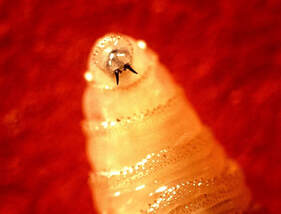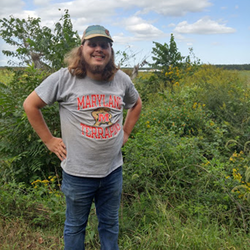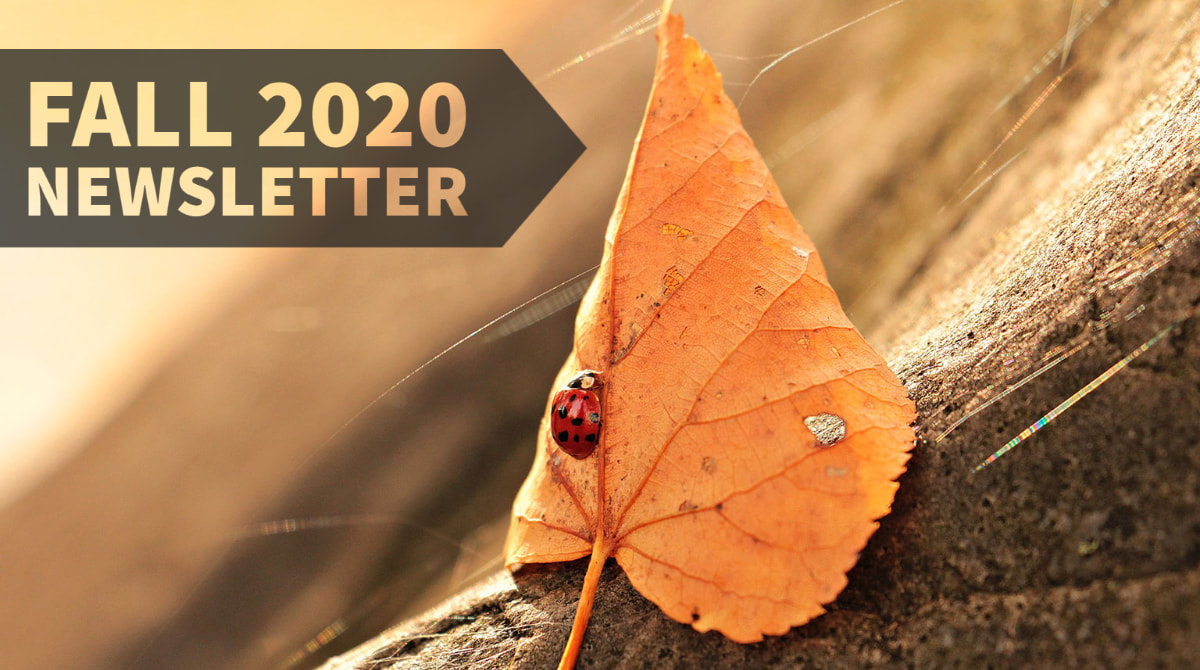written by: Demian Nunez and Madeline Potter
Neonicotinoids are most commonly known to the public as a class of chemicals responsible for widespread pollinator decline. To growers they are a cheap means of dealing with historically difficult soil pests and are heavily used throughout the United States as a preventative measure. Given their prevalence, are the benefits enough to justify their use? Recent University of Maryland (UMD) entomology graduate Dr. Aditi Dubey, Hamby Lab, addressed this question and more in her exit seminar, summarizing five and a half years of research.  Figure 1. Screwworm larva (USDA - APHIS) Figure 1. Screwworm larva (USDA - APHIS) written by: Graham Stewart, Meghan McConnell, Tais Ribeiro On the past November 20th, Dr. John Welch, Liaison for Action Programs of International Services (APHIS) and co-recipient of the 2020 Scientist of the Year Award, brought to the Entomology colloquium his example of a successful entomological career outside of academia, sharing some of his adventures and the many roles he has occupied. Although Dr. Welch’s work has involved a variety of issues, over the years his main focus has been on eradication of the screwworm (Fig 1), Cochliomyia hominivorax (Diptera: Calliphoridae). The screwworm is a deadly, parasitic fly that feeds on the living tissues of warm-blooded animals. It has many nicknames, one being “man-eater”. It has been a problem for livestock and humans for decades, leading to major economic losses for farmers. Two entomologists Edward F. Knipling and Raymond C. Bushland, are known for pioneering successful eradication efforts through the Agriculture Research Service (ARS). They developed the sterile insect technique (SIT), a low dose of radiation to make the screwworms sterile. The flies are then raised in a lab and released in infested areas. These sterile males mate with the females and the eggs laid do not mature. Drainage ditches as valuable sources of spider diversity and abundance for adjacent croplands12/1/2020
 written by: Eva Perry and Lindsay Barranco At the beginning of his Entomology Department exit seminar presentation, graduate student Dylan Kutz asked his zoom-viewing audience “Who cares about spiders?” and “Why study drainage ditches?” – two questions that immediately grabbed everyone’s attention. Over the past three years Dylan has proven himself to be an adventurous and fearless researcher – sampling agricultural cropland drainage ditches for spiders in order to ascertain how they may facilitate natural pest management practices by supporting spider populations. |
Categories
All
Archives
June 2024
|
Department of Entomology
University of Maryland
4112 Plant Sciences Building
College Park, MD 20742-4454
USA
Telephone: 301.405.3911
Fax: 301.314.9290
University of Maryland
4112 Plant Sciences Building
College Park, MD 20742-4454
USA
Telephone: 301.405.3911
Fax: 301.314.9290


 RSS Feed
RSS Feed




